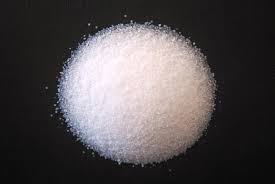
Août . 06, 2024 05:41 Back to list
Exploring the Benefits and Applications of Ammonium Phosphate Sulphate in Agriculture and Industry
Ammonium Phosphate Sulphate An Overview
Ammonium phosphate sulfate, often abbreviated as APS, is a versatile and essential compound primarily used in agriculture as a fertilizer. This compound combines nitrogen, phosphorus, and sulfur, three essential nutrients that are critical for plant growth and development. Understanding the role and benefits of ammonium phosphate sulfate in agricultural practices can help improve crop yield and support sustainable farming.
Composition and Production
Ammonium phosphate sulfate is typically synthesized through the reaction of phosphoric acid with ammonium sulfate. This process creates a compound that is rich in nutrients, combining the benefits of both ammonia and phosphate, along with sulfate ions. The resulting fertilizer is typically in the form of granules or crystals, making it easy to handle and apply.
The nutrient composition of APS can vary, but it is generally characterized by a balanced release of nitrogen, phosphorus, and sulfur, offering an effective solution for various soil conditions. These nutrients are crucial for different physiological processes in plants, including photosynthesis, energy transfer, and overall metabolism, which ultimately leads to enhanced growth and productivity.
Benefits in Agriculture
1. Nutrient Supply One of the primary advantages of ammonium phosphate sulfate is its comprehensive nutrient profile. It supplies nitrogen, which aids in leaf growth; phosphorus, which is essential for root development and flowering; and sulfur, which is vital for protein synthesis. This balanced nutrient supply can lead to healthier plants and improved yields.
2. Soil pH Management APS can help in neutralizing acidic soils, owing to its sulfate content. By managing soil pH, it can enhance nutrient availability and improve overall soil health, making nutrients more accessible to plants.
ammonium phosphate sulphate

3. Reduced Soil Erosion Using ammonium phosphate sulfate as a fertilizer can contribute to improved soil structure. Healthier plants with strong root systems can help reduce soil erosion, maintaining soil integrity over time.
4. Versatility APS is suitable for a wide range of crops, including cereals, vegetables, and fruit trees. Its versatility allows farmers to use it across different agricultural systems, adapting to specific crop needs and soil conditions.
5. Environmental Considerations Properly managed application of ammonium phosphate sulfate can lead to reduced environmental impacts compared to conventional fertilizers. When applied at recommended rates, it minimizes the risk of nutrient runoff into water bodies, thereby protecting aquatic ecosystems.
Application Techniques
To maximize the benefits of ammonium phosphate sulfate, farmers must consider appropriate application techniques. Soil testing is crucial to determine nutrient deficiencies and pH levels. Based on this assessment, APS can be applied either directly to the soil or incorporated into the planting process.
Broadcasting APS before planting helps ensure uniform nutrient distribution, while banding it near the seed at planting can improve nutrient uptake during critical growth stages. Additionally, timing is essential. Applying APS during periods of active crop growth ensures that plants receive nutrients when they need them most.
Conclusion
Ammonium phosphate sulfate is a significant agricultural input that plays a crucial role in modern farming practices. Its balanced nutrient profile and beneficial effects on soil health make it an ideal choice for enhancing crop productivity. By understanding its properties and proper application techniques, farmers can optimize their use of APS, contributing to sustainable agriculture and food security. As agriculture continues to evolve, the importance of such multifunctional fertilizers cannot be overstated, ensuring that crops thrive in an ever-changing environment.
-
Organic 10-10-10 Fertilizer | Balanced Plant Nutrients
NewsJul.31,2025
-
Premium Amino Acid Fertilizer | Rapid Plant Growth Booster
NewsJul.31,2025
-
10 10 10 Fertilizer Organic—Balanced NPK for All Plants
NewsJul.30,2025
-
Premium 10 10 10 Fertilizer Organic for Balanced Plant Growth
NewsJul.29,2025
-
Premium 10 10 10 Fertilizer Organic for Balanced Plant Growth
NewsJul.29,2025
-
Premium 10 10 10 Fertilizer Organic for Balanced Plant Growth
NewsJul.29,2025
